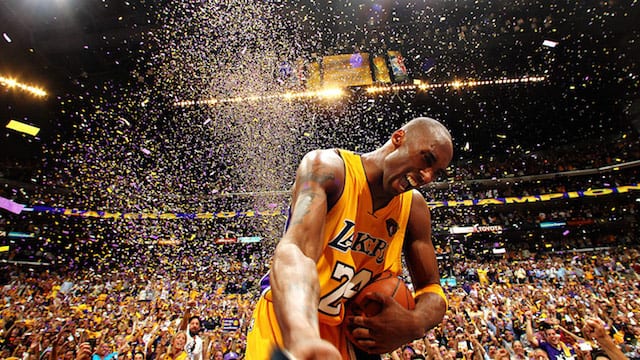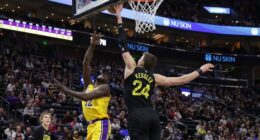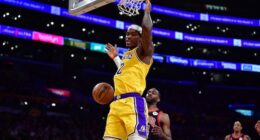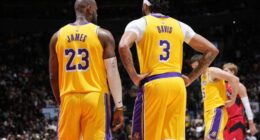1) The Lakers appear a team of the present, and that’s a good thing.
I recently raised the question of whether the Lakers are a team too caught up in “that’s the way we’ve always done it” to thrive in the modern world. The potential dark side of unparalleled success is that you can become a prisoner to the formula that fueled those glory days, and I’ve been periodically concerned about the Lakers’ unwillingness to break from the tried and true. A resistance towards analytics (particularly from Byron Scott, who’s been outright dismissive of them.) A myopic focus on landing stars first, rather than building a legit infrastructure that might actually attract a star. Hiring a head coach whose Showtime ties arguably outweighed his coaching credentials. And quite frankly, a stubborn unwillingness to acknowledge that the league has changed. The new CBA doesn’t give the Lakers the same advantages with outspending competitors. The NBA’s global presence, combined with social media connectivity, has made playing in L.A. far less mandatory to be seen. These shifts demand that even an 800 lb. gorilla like the Lakers roll with the new.
As the saying goes, adapt or die.
But upon selecting Russell, the Lakers acknowledged a league predicated more on guard-play, spacing and speed than their big man tradition. To be clear, they didn’t select a point guard purely to march the current direction. Had they felt Jahlil Okafor was the best available player, a choice to zig in the face of much zagging would have been made. The Lakers insist Russell’s superior talent prompted this selection, and I tend to believe them. But it’s nonetheless reassuring to see their own convention occasionally bucked, which I don’t think has been their strong suit over the last few seasons.
CONTINUE SLIDESHOW: Four Takeaways From The Lakers’ 2015 NBA Draft Night








